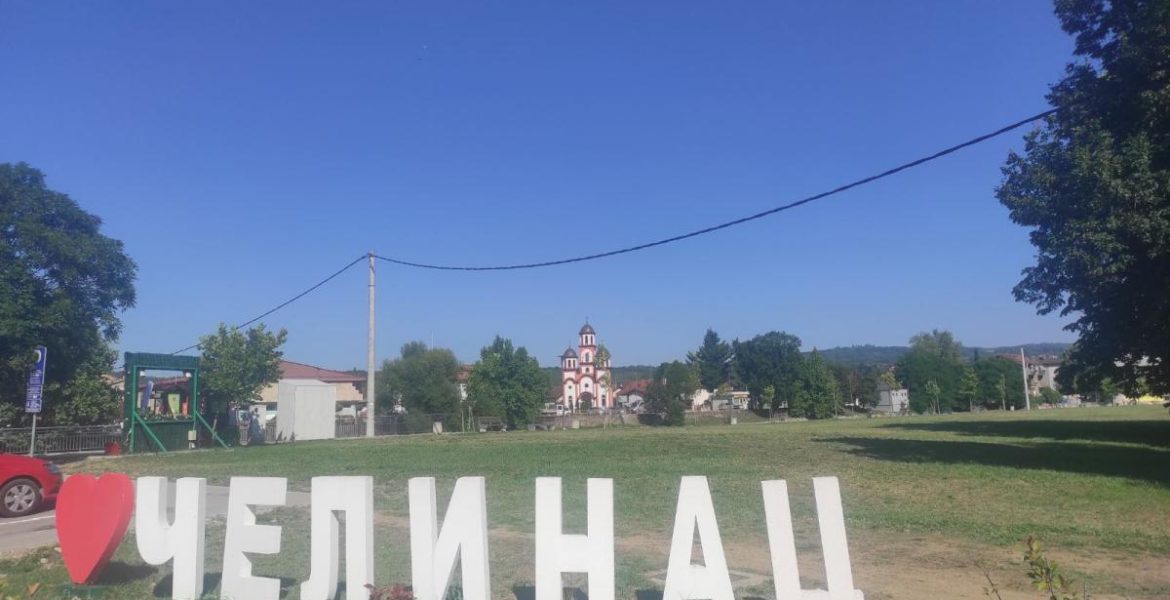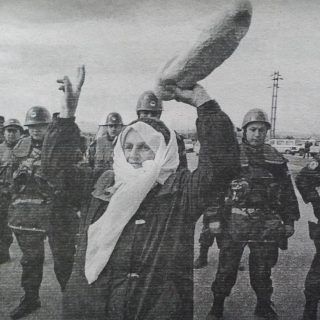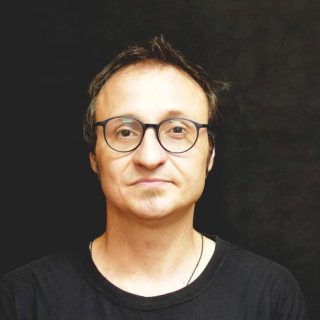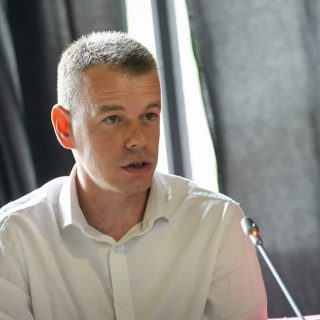Srebrenica, Prijedor, Ahmići, Višegrad… When it comes to war crimes in Bosnia and Herzegovina, these are the locations that are usually mentioned in this context. This happens for a reason. Crimes committed elsewhere were swept under the rug. One of these locations is Čelinac, an idyllic town near Banja Luka.
Author: Milkica Milojević
In the period from 1992 to 1995, civilians were killed, villages were set on fire and houses were destroyed in Čelinac. Two mosques and a Catholic chapel were also torn down. Families were detained at schools and other public buildings, with the explanation that it was done ”for their safety”.
This is also supported by court rulings and stories of rare Bosniaks, who still live in Čelinac in spite of the horrors they experienced.
Many regretted such a decision.
Smajo Hodžić did not have a chance to decide or regret. Armed persons took him from his house in Čelinac in the spring of 1992 without any explanation. He never came back.
His mother and sisters had waited for years for him to come back. They found him in a mass grave. After she had buried her brother, Smajo’s sister died from cancer. His other sister did not live long enough to see when his bones were found. She died from a stroke in 1996.
During the trial of Mićo Stanišić and Stojan Župljanin before the Hague Tribunal, a protected witness revealed that Smajo was subjected to torture, and then killed in prison in Kotor Varoš.
-One night, Smajo Hodžić from Čelinac, (Enver) Čuta Beharić, a goalkeeper at the local football club, and Mato Bjelobrk, a teacher from Vrbanjci, were taken from my prison cell and nobody ever saw them again. I heard a fire arm being fired, but I was not sure whether they had been killed. Their bodies were found later on on the banks of Vrbanja – witness ST019 stated.
This is still not discussed in Čelinac or Kotor Varoš.
Another topic that is not discussed is the fact confirmed by the Hague Tribunal that ”at least five civilians of Muslim ethnicity, two women and a man, were killed at the village Bastasi on August 16, 1992”.
The abandoned village Mehovci, burned down in 1992, the murder of three civilians in the village Basići, as well as the persecution in the suburban settlement Šamac, inhabited by Bosniaks, are also rarely mentioned.
The District Court of Banja Luka sentenced Slobodan Kuzmanović and Aleksandar Radić, former members of the Army of Republika Srpska, to 4- and 3-year prison sentences each.
As stated in the ruling, they were shooting and throwing bombs at houses in Šamac in August of 1992 without any military justification. On this occasion, one inhabitant was killed, and two persons and a 28-day old baby were wounded.
In the same month, all Muslim houses in Šamac were burned down.
Today, buildings are constructed in Šamac next to neglected meadows and abandoned houses of returnees and displaced persons, in places in which there had never been any.
Many houses at the centre of Čelinac were destroyed in the war, and the inhabitants were persecuted.
According to the 1991 census, 16,554 (88%) of Serbs, 1446 (8%) of Muslims, and 76 Croats lived on the territory of Čelinac Municipality. According to the 2013 census, only 453 persons from Čelinac declared themselves as Bosniaks, and 49 as Croats. There were around 3% of them in total.
In the sentence against Momčilo Krajišnik, handed down by the Hague Tribunal in February of 1992, it is stated that the persecution started in February of 1992. Back then, two non-Serb policemen were fired, and ”various paramilitary groups arrived in Čelinac and started robbing and destroying houses owned by Muslims”.
It is stated that ”on July 23, 1992, the war presidency of the municipality adopted a decision to grant a special status to the non-Serb inhabitants of the municipality”.
This decision provided, among other things, that ”non-Serbs had the right to live within their households freely”, and ”the right to leave the territory of the municipality, under the condition that the move is organised and that the whole household is moving”.
They were prohibited from moving between 16:00 and 18:00, from selling and exchanging their apartments without the approval of the competent municipal body, using means of communication, except for the postal office phone, staying in public places and travelling to other cities.
Our interlocutor, a Bosniak woman who was born and grew up in Čelinac, remembers the life under such circumstances well. Her identity is known to the editorial board of Impuls.
-All of a sudden, we were cut off, we were not allowed to leave our yard. My parents lost their jobs, we did not have anything. Nobody was allowed to help us. It was scary. We were trapped at our home, waiting for armed men to appear on our doorstep – this woman from Čelinac says.
A neighbour, who was a Serb, saved them from such a raid. When a group of armed and unknown men came to their street to ”look for Bosniaks”, the neighbour told them: ”There are none here, you are wasting your time for nothing, they have already left”.
-Even today, that man cannot say what he did, because he would be branded as a traitor – our interlocutor says.
She also remembers Serb women who came to their house secretly at night to bring them a bottle of oil or a bag of flour. They also keep silent about it, as if it were a shame or sin to help people in need.
She remembers how they searched their house and looked for arms that were not there and how an explosive device was thrown at the house and all windows shattered.
-Once, they took us, together with other families, to a school ”for our safety”, as they claimed. We knew that, while we were at the school, they were plundering our houses. We slept on the floor for days, without food or water. My dad decided that we would go home at our responsibility, whatever might happen – this woman from Čelinac says.
They put a Serb flag on their house in order to protect themselves from unwanted guests.
They did not request the police to protect them. Some persons from Čelinac tried to do so, but they were told that the police could not help them and that the best thing would be to move.
Our interlocutor says that Bosniaks are marginalised in Čelinac today, only because they are different from most other persons and because they have different names.
-There is no understanding for differences, no empathy towards victims of war torture – this woman from Čelinac concludes.
Today, the police station building, where Bosniaks and Croats could not obtain protection during the war, bears a large heading only in Cyrillic.
Next to the police station, there is an Orthodox church.
Few Bosniak children in Čelinac attend school at a building where their fellow Bosniaks and cousins were detained in the 1990s. The school is full of icons and other Orthodox emblems.
Čelinac is full of Cyrillic signs and Serb flags.
The main bridge over Vrbanja at the city centre, which is a symbol of Čelinac, is called the ”Bridge of Serbia”. Written in Cyrillic, of course.
In Popovac near Čelinac, the village in which Radoslav Brđanin was born, there is a big new Orthodox church. In front of the church, there is a monument dedicated to persons killed in World War I – dedicated both to Chetniks and Partisans.
-This is a monument dedicated to both Serbs and communists. We built it to set matters straight – says one of the inhabitants.
He boasts that he fought together with Brđanin in the last ”defense and homeland war”.
-Brđanin is not guilty at all, he was in prison for nothing – he says.
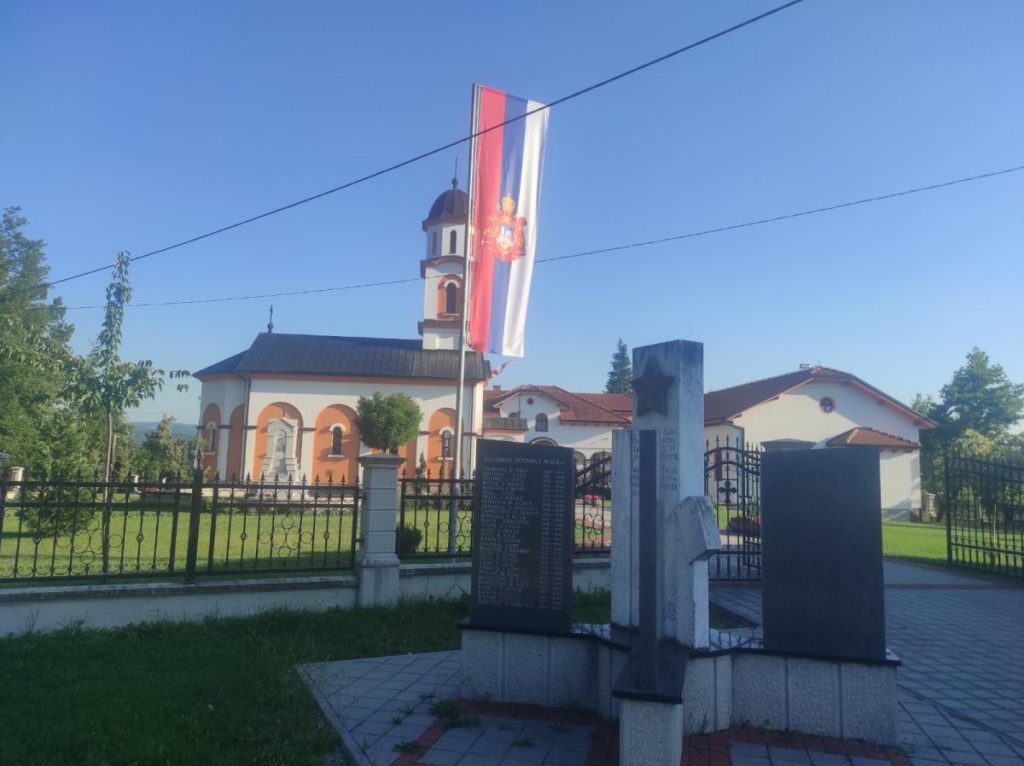
The Hague Tribunal sentenced Radoslav Brđanin to a 30-year prison sentence for crimes against humanity. A significant part of the crimes stated in the indictment are crimes committed in Čelinac and the surroundings.
His defence claimed that Brđanin ”saved the lives of 1860 Bosnian Muslims in Čelinac Municipality in August of 1992”. The Tribunal found that the claim was ”excessive”.
During the war, Radoslav Brđanin was the president of the crisis staff of the autonomous region Krajina. After the war, he continued his active engagement in politics until 1999, when he was arrested at the order of the Hague Tribunal.
In 1992, armed Serb soldiers started their attack against the neighbouring Muslim village Basići from Brđanin’s Popovac.
Back then, Basići was a densely populated village, Fatima Mujkanović, an inhabitant, says.
-They were shooting at the village, people were fleeing to their houses. My sister also tried to escape. They broke down the door, entered the house and killed her. Her husband saved himself by hiding under a table. They also killed two more neighbours – Fatima says.
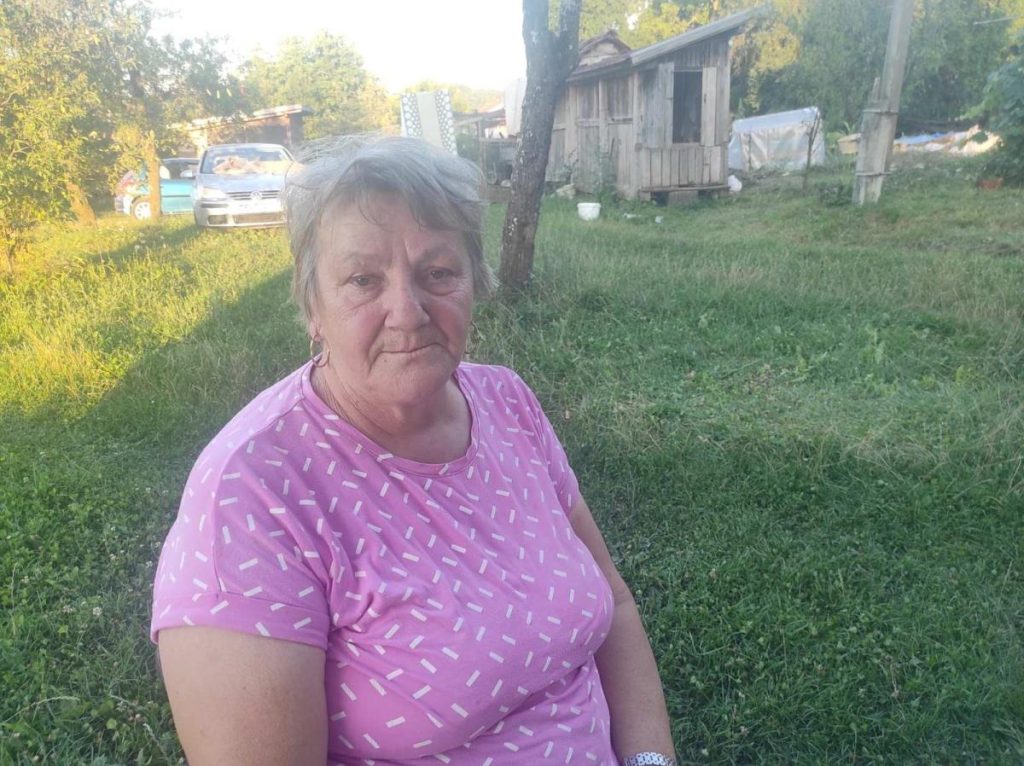
She remembers how the children of their neighbour Rifet, who was also killed, went to the roof and cried for help. Nobody had the courage to help them.
-Several people were wounded and they self-medicated by using medicinal herbs. They were afraid to ask for medical assistance. A woman lost a piece of flesh. It fell off from her leg and stayed in her salwar pants. I have no idea how she survived – Fatima says.
According to her, people from Basići hid in their basements, waiting for the shooting to die down and for the assailants to leave. On the next morning, they formed a line and started their escape toward Banja Luka. In some Serb villages, people did not allow them to pass, they lied in wait. In other villages, they protected them.
They managed to reach Karanovac.
-We sat down on the meadow and waited. The police came and searched us. They were looking for arms and valuables. I hid my jewelry in my panties. Later on, while I lived as a refugee, that gold saved my children from hunger – Fatima says.
The police ordered them to go back to their village.
-We were afraid to do so. We feared that they would attack us again. We saw how the neighbouring village Mehovci was burned down. Today, Mehovci village is empty. The few people that came back after the war either died or moved away again – Fatima says.
She says that in Karanovac they were told that they have to go back to Čelinac, since it was ”their municipality”.
-We did not have a choice, although we did not know where to go or what to do once we come to Čelinac. They gave us a bus. We were stopped by an armed patrol car. A man with a grim face told our driver: ”Take them somewhere to a forest and kill them all” – Fatima remembers.
They did not kill them. They spent the night on the bus in Čelinac, and then they started moving, wherever they were able to go, to family members and friends. She went to her sister’s in Vrbanja. Armed assailants attacked their house there as well.
-I went to Travnik in the spring of 1993 with the help of the Red Cross. We spent two years at a collective centre located in the building of a grammar school. Later on, we were transferred to Sanski Most – Fatima remembers her days as a refugee.
Together with her husband and her two sons, who grew up as refugees, she went back to her village, her destroyed farm.
After everything, she does not hate and does not blame anyone, although she knows that two men were convicted of murders in Basići.
-It is not up to me to speak about it. There was a war and everybody was suffering – Fatima says.
Her sons are grown men today. One of them lives in Germany and has a girlfriend who is of Orthodox faith. He regularly visits home.
The other works in Banja Luka and goes to work by car every day. His boss is a Serb, a good man.
Fatima has coffee with her neighbour Nevenka almost every morning. She is almost like a sister, she says.
Today, there are nine Bosniaks who returned to Basići, including Fatima’s family. There are also two families of Serbs who stem from and still live in the village.
Many farms, fields and meadows are overgrown with weeds, and the road to Čelinac and Banja Luka is eerily deserted.
The text was co-authored in cooperation with the portal IMPULS.
